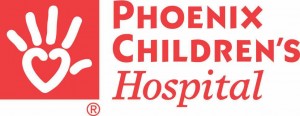-
 Arizona
ArizonaMayo Clinic, Phoenix Children’s Hospital Dog Bite Study Highlighted
PHOENIX — Prior studies have shown that most dog bite injuries result from family dogs. A new study conducted by Mayo Clinic and Phoenix Children’s Hospital shed some further light on the nature of these injuries.
The American Veterinary association has designated this week as Dog Bite Prevention Week.
The study, published last month in the Journal of Pediatric Surgery, demonstrated that more than 50 percent of the dog bites injuries treated at Phoenix Children’s Hospital came from dogs belonging to an immediate family member.
 MEDIA CONTACT: Jim McVeigh, Mayo Clinic Public Affairs, 480-301-4222, Email: mcveigh.jim@mayo.edu
MEDIA CONTACT: Jim McVeigh, Mayo Clinic Public Affairs, 480-301-4222, Email: mcveigh.jim@mayo.edu
Stacy Dillier, Phoenix Children’s Hospital, 602-933-0824, sdillier@phoenixchildrens.com
The retrospective study looked at a 74-month period between 2007 and 2013 in which there were 670 dog bite injuries treated at Phoenix Children’s Hospital. Of those, 282 were severe enough to require evaluation by the trauma team or transportation by ambulance. Characteristics of the most common injuries included:
- Both genders were affected (55 percent male)
- The most common patient age was 5 years, but spanned from 2 months to 17 years
- 28 dog breeds were identified and the most common dog was pit bull
- More than 50 percent of the dogs belonged to the patient’s immediate family
- The most common injuries were lacerations (often to the face) but there were also a number of fractures and critical injuries such as severe neck and genital trauma
“More than 60 percent of the injuries we studied required an operation,” said lead author Erin Garvey, MD, a surgical resident at Mayo Clinic “While the majority of patients were able to go home the next day, the psychological effects of being bitten by a dog also need to be taken into account.”
“The biggest warning from this study is that familiarity with a dog may confer a false sense of safety,” said Ramin Jamshidi, MD, senior author on the study and a pediatric surgeon at Phoenix Children’s Hospital and Medical Director of Pediatric Trauma at Maricopa Medical Center.
“The next step is to find out what type of education is needed and for whom – the parents, owners of the dogs and even the kids themselves,” explains Dr. Garvey.
“Above all, we are interested in the health of children, so we hope to educate families on the importance of following safety tips and guidelines when dealing with dogs, even the well-known family pet at home,” echoes Dr. Jamshidi.
The Injury Prevention Center at Phoenix Children’s Hospital works to educate patients and families in areas of safety – whether it is water safety, car seat safety or home safety – their goal is to make sure families have the tools they need to keep their children safe. When there is a family dog in the home, the Injury Prevention Center recommends families follow some of the below tips:
- Never leave infants or young children alone with a dog, including the family dog
- Make sure all dogs in the home are neutered or spayed
- Take time to train and socialize your dogs
- Keep dogs mentally stimulated by walking and exercising them
- Teach children appropriate ways to interact with animals
For more information, please visit http://www.phoenixchildrens.org/health-information/children/29973/30008/30010/1,2739.
###
About Mayo Clinic
Mayo Clinic is a nonprofit organization committed to medical research and education, and providing expert, whole-person care to everyone who needs healing. For more information, visit http://www.mayoclinic.org/about-mayo-clinic and https://newsnetwork.mayoclinic.org/.
About Phoenix Children’s Hospital
Phoenix Children’s Hospital is Arizona’s only children’s hospital that is ranked in U.S. News & World Report’s Best Children’s Hospitals. Phoenix Children's provides world-class inpatient, outpatient, trauma, emergency and urgent care to children and families in Arizona and throughout the Southwest. As one of the largest children’s hospitals in the country, Phoenix Children’s provides care across more than 75 pediatric specialties. The Hospital is poised for continued growth in quality patient care, research and medical education. For more information about the hospital, visit www.phoenixchildrens.org.








